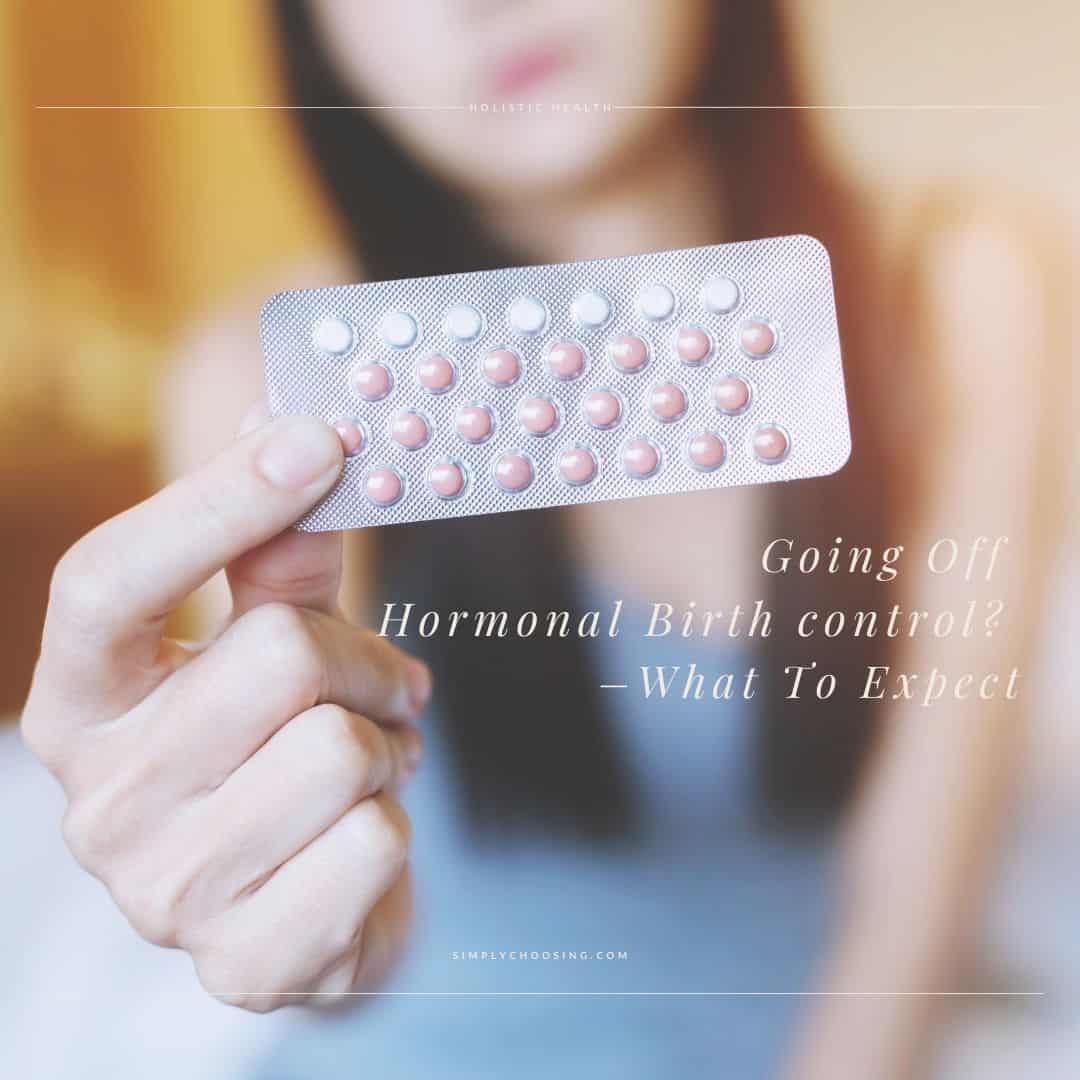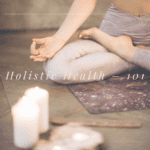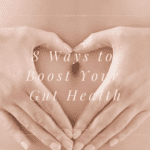What will you get from this blogpost:
- An overview of hormonal birth controls and what they do.
- What side effects you may have when you stop using hormonal birth control.
- How you can deal with these side effects and how I manage them.
About two years ago, I decided to quit taking hormonal birth control.
By then I had been taking many different pills for over a decade. So, as you can imagine, I experimented a lot with these little pills. Unfortunately, they all didn’t really do anything for me – except that I didn’t get pregnant, I guess.
I had bad migraines over the years, experimented with mood swings as high as the Eiffel Tower, and other side effects like hair loss and losing a ton of bodyweight overnight. But no matter what I told my gynecologist, she just prescribed me another pill. With fewer hormones, more hormones, different hormones, and so on.
Of course, I trusted my gynecologist. After all, she’s been in this business for a long time, she must know what’s best for me and my health. So I just blindly followed her advice.
It took me a while to realize that this was total nonsense.
Yes, I was menstruating every 28 days.
Yes, I had less pain in my ovaries when I bled.
Yes, I ovaluated and had a normal period, or so I thought.
Little did I know that with this magic pill, I wasn’t actually getting my period. As I soon learned, the periods that occur from the birth control pill are actually synthetic or fake bleeding. Huh?!
I’ve been bleeding for over a decade, but not really? That can’t be right.
When I finally went off the pill about two years ago, I had some side effects to heal:
First, it started with a really heavy bacne… And honestly, I’m still struggling with it.
Then I realized that my actual cycle wasn’t the exact 28 days like my gynecologist used to tell me is normal. It actually moved between 25 and 32 days. Plus, my period didn’t last a week, but only three to four days.
I started to have minor panic attacks including other symptoms which usually occur with it.
I couldn’t sleep, had severe menstrual cramps and headaches lasting for days.
Well, those are just some examples of side effects I’ve experienced after going off the pill. Some may be familiar to you, some may not.
Whatever it is for you, I’ll be covering some of the side effects of going off the hormonal birth control later in this post but for now, let’s dive into what hormonal birth control is in the first place:
What are hormonal birth control methods?

In a nutshell: Hormonal birth control is contraceptives that use synthetic hormones to prevent pregnancy.
These include:
- Combined Oral Contraceptive pills (COC)The combination of synthetic progestins and estrogens prevents the release of hormones needed for follicular development and ovulation, thus blocking ovulation. They also thicken the cervical mucus so that sperm cannot penetrate as easily, and prevent the lining of the uterus from thickening.
- The Minipill (progestin-only birth control pill)The minipill has only 1 hormone, the progestin. The dose of progestin, however, is not high enough to prevent ovulation in all users, but is often better tolerated. It also has a contraceptive effect by thickening the cervical mucus and preventing the uterine lining from thickening.
- Ring and PatchThe ring and the patch are comparable to the COC. Here, the only difference is how the hormones get into the body and how often you have to remember to take them. The progestins and estrogens in these methods also prevent ovulation, thicken the cervical mucus and prevent the lining of the uterus from thickening.
- Implants and InjectablesThese work like the ring and the patch, but do not contain estrogens. They prevent ovulation, thicken the cervical mucus and the thickening of the uterine lining.
- Hormonal IUDSimilar to the other contraceptives, hormonal IUDs primarily thicken the cervical mucus and prevent the uterine lining from thickening. Of all the options, it probably has the lowest hormone dose. This also means that hormonal IUDs only block ovulation in a small percentage of cases.
Why Do People Quit Hormonal Birth Control?

Of course, many women decide to quit hormonal birth control because they want to get pregnant. But some, like me, just want to stop because of how it makes them feel.
It’s no secret that one of the biggest side effects of hormonal birth control is decreased libido, impaired mood, anxiety, and depression. In addition to these side effects, you may also experience migraines and headaches, weight gain or loss, nausea, breast tenderness, and spotting between periods. According to NCBI, there could also be a small risk of blood clots forming (thrombosis), especially for women over 40.
However, it is hard to tell if someone will get all or just some of these side effects from taking birth control pills. Other external factors can also be triggers (or supporters) that may impact mental and physical health, such as work, relationships, diet, etc.
Nevertheless, stopping hormonal birth control can improve your health and possibly give you relief.
What Happens When You Quit Hormonal Birth Control?
When you quit hormonal birth control, you may feel some changes in your body and mood. But these changes are not “side effects” as we would normally call them. What is happening is that your body and reproductive system are returning to their natural state and cleansing the body of the contraceptives.
The hormones themselves should be out of your system within 48 hours after quitting. However, side effects will most probably appear afterward, as there is a big change happening for your body. For some, it can take years, for some only months to adjust. This most probably also depends on how long you’ve been on hormonal birth control, which one you’ve been taking, and what underlining health issues you’ve had before taking hormonal birth control.

So what are potential side effects?
While every body reacts differently, the following side effects are very common:
Adjustment Period
One side effect that most will have is the adjustment period when your period is absent or different than usual. However, your ovaries and menstrual cycle will return to “normal” within 90 days. I use the term “normal” because it simply means that your period will return to the way it was before you started birth control.
- If you had a heavy or painful period before, it will most likely be heavy and painful again.
- If you had an irregular menstrual cycle, it could become irregular again.
If your cycle is still not normal after 90 days, it is usually an underlying problem such as polycystic ovary syndrome (PCOS), thyroid disease, or endometriosis that you had before you started hormonal contraception. In these cases, you should take charge of your menstrual health and hormone balance and see your gynecologist. A book I highly recommend regarding your menstrual health is “Taking Charge of Your Fertility” by Toni Weschler.
Return of ovulation
When you stop using hormonal contraception, your ovaluation ideally returns within three months. However, depending on what contraceptives you were taking, it may take longer.
Headache
Some women may experience headaches or migraines midcycle when estrogen levels drop.
Acne and bacne
Acne and bacne occur mainly when you stop hormonal contraception, which, after all, lowers testosterone levels. After discontinuation, testosterone levels increase, leading to clogged pores.
Mood swings
This really depends on each individual. If you struggled with depression and anxiety or just mood swings while taking the pill, they might go away. If you had mood swings before taking hormonal birth control, you might have similar symptoms when you stop taking the pill.
Changes in sex drive
If you had a low sex drive while taking birth control pills, it should return soon after you stop taking them.
Menstrual cramps
If you had heavy or painful periods before taking hormonal birth control, you can expect these symptoms to return.
How Can You Manage Side Effects When Going Off Hormonal Birth Control?
Just like the side effects when starting hormonal birth control, the side effects when coming off birth control are temporary. Most go away over time without treatment.
However, some side effects may interfere with your daily life and last for a year or more. In this case, I recommend that you take time to find out the cause of the side effects and adjust your lifestyle.
This may include detoxifying your system, changing your diet, or practices such as synchronizing your cycle, yoga, and meditation.

My way of dealing with these side effects:
I have been working on managing my side effects after stopping hormonal birth control for some time now.
While my bacne is pretty persistent (where I cannot recommend anything to you at the moment), I have noticed a lot of relief in the other symptoms, such as my sleep quality, panic attacks, and headache, when I started focusing on my diet and mental state.
- I personally eat a mostly plant-based diet, with lots of nutritious fruits and vegetables, as well as beans and legumes in each of my meals. I am also drinking a liter of lemon water every morning and providing myself with pure, still water during the day.
- As much as I enjoy coffee, I have given up drinking coffee (with a few minor exceptions) and try to limit myself to one or two matcha lattes a day.
- I learned mindfulness through yoga and meditation, which really helped me understand my body’s needs and listen to my cycle.
- I started educating myself, taking care of my health and aligning my meals and exercise routine with my cycle (also called cycle syncing).
- In general, I take care of my emotional state and always look after myself first before I worry about anything else – one of the most important lessons I have learned so far, not only in dealing with my side effects, but also for my life in general.
All these practices are not only helping me to manage these side effects but also to regulate my hormonal balance, to be happy and content, and to grow towards the person I really am.
These are my ways to deal with it, just one of the thousands of recommendations you could follow. Some practices may help you, others may do nothing. What is important is that you find what heals you.
What Are Some Non-Hormonal Contraceptions?

If you want to prevent pregnancy without taking hormonal contraceptives, consider the following options:
Condoms: when used properly, condoms are 98% effective and also the only contraceptive that prevents STD transmission.
Copper IUD: Another one-time contraceptive option is the non-hormonal copper IUD. It is the most effective form (99%) of birth control and can last up to 10 years.
Diaphragm or Cervical Cap: These two barrier methods can prevent pregnancy when combined with a spermicide. Diaphragms are up to 96% effective, while cervical caps are only up to 86% effective.
While all of these methods are effective, you can also track your cycle with a basal thermometer. This method requires some patience, but if you use it properly, it will give you a lot of benefits. First of all, you will know exactly when you are fertile and when you ovulate, but not only that. You will get to know your body on a whole new level.
Whatever you decide, taking charge of your menstrual cycle and your body brings benefits that – in my opinion – a hormonal birth control method does not.
What was your experience when returning to your natural cycle?







0 Comments